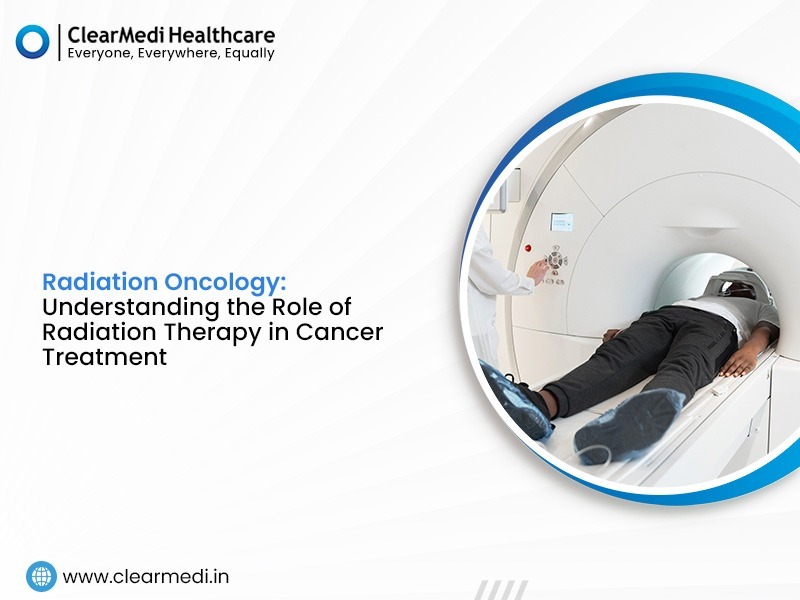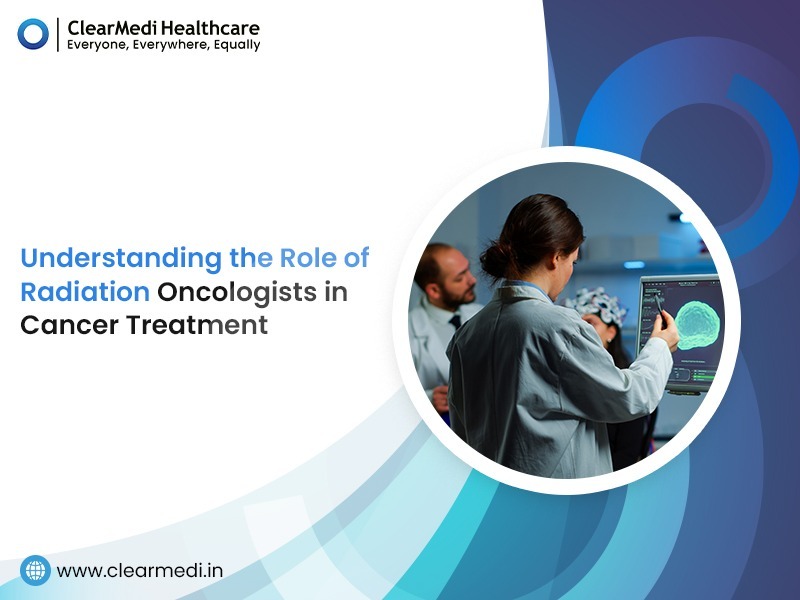Not known Details About Arogyajivan Medical Tourism For Oncology
Not known Details About Arogyajivan Medical Tourism For Oncology
Blog Article
Arogyajivan Medical Tourism For Oncology Fundamentals Explained
Table of ContentsWhat Does Arogyajivan Medical Tourism For Oncology Mean?The Only Guide for Arogyajivan Medical Tourism For OncologyArogyajivan Medical Tourism For Oncology for BeginnersNot known Facts About Arogyajivan Medical Tourism For OncologyThe 15-Second Trick For Arogyajivan Medical Tourism For OncologyNot known Details About Arogyajivan Medical Tourism For Oncology Getting The Arogyajivan Medical Tourism For Oncology To Work
If you have cancer, your health care service provider will recommend one or even more methods to treat the disease. Here is a summary of the various therapies for cancer cells and just how they work.Cancer cells expand and split faster than regular cells in the body. Because radiation is most harmful to promptly expanding cells, radiation treatment damages cancer cells a lot more than typical cells. It utilizes compounds made by the body or in a lab to help the immune system work harder or in a much more targeted means to deal with cancer cells.
Some have toxic substances or radioactive materials attached to them. It utilizes surgical procedure, or medications to stop or block the body's natural hormonal agents. This assists slow the growth of cancer cells.
The medications are offered by injection or as tablets. Hyperthermia uses warm to damage and eliminate cancer cells without damaging normal cells. It may be used for: A little area of cells, such as a tumorParts of the body, such as a body organ or limbThe entire body The warmth is supplied from a device outside the body or with a needle or probe put in the tumor.Laser therapy makes use of an extremely narrow, concentrated beam of light of light to damage cancer cells. Slim fibers at the end of the tube route the light at the cancer cells. Lasers are most typically made use of with various other kinds of cancer therapy such as radiation and radiation treatment.
Top Guidelines Of Arogyajivan Medical Tourism For Oncology

An oncologist is a cancer cells medical professional. Advertising and marketing on our site assists sustain our mission. A check out to an oncologist gives you an opportunity to chat with a specialist who comprehends what you're going with.
They're ready to assist, and they'll walk with you every step of the method. Oncologists can: Run checks to identify cancerOffer a consultation on a previous diagnosisIdentify therapy optionsDiscuss each option's advantages and side effectsOversee cancer cells treatmentManage post-treatment care Seeing an oncologist doesn't go right here necessarily indicate you have cancer cells. An oncologist obtains included if you have symptoms that may be cancer cells.
5 Simple Techniques For Arogyajivan Medical Tourism For Oncology
The sooner you get a diagnosis, the far better. Numerous cancers are more treatable in the beginning. Cancer cells is an intricate condition. Individuals with cancer cells commonly require numerous oncologists on their health care team. This multidisciplinary strategy enables each specialist to concentrate on a various location of your therapy with a common objective of joint, compassionate treatment - ArogyaJivan Medical Tourism for Oncology.
Radiation can shrink lumps prior to surgical procedure or eliminate staying cancer cells after surgical treatment. You may have radiation as a helpful resources stand-alone treatment or in mix with various other therapies.
Getting My Arogyajivan Medical Tourism For Oncology To Work
Do I have cancer cells? How much time have I had it? What will my life look like now? If these are the inquiries competing with your mind, you're not the only one. Your oncologist is here to assist you browse these feelings. Throughout your very first check out, your oncologist will: Ask you to describe your signs and symptoms in detailDo a checkupReview your clinical records, including family members history and any past or existing wellness conditionsRun any needed examinations (like imaging tests or laboratory job) to get more information concerning your symptomsDetermine whether you need a biopsyAs soon as your oncologist collects the details they require, they'll: Discuss the results of your testsSend their searchings for to the health care provider that referred youTell you whether you have cancer and if so, what kindTalk to you regarding different therapy optionsListen to your issues and anxietiesGive you resources that can offer assistance and extra informationYour initially oncology browse through might take up to 3 hours.
Oncology is the research study of cancer cells. Words comes from the Greek word for tumor or mass. The clinical area of oncology covers cancer cells research, risk and prevention, medical diagnosis, treatment, and survivorship. Professionals learnt oncology offer take care of individuals that go to danger for cancer, being dealt with for cancer, and dealing with cancer after therapy.

7 Simple Techniques For Arogyajivan Medical Tourism For Oncology
Some kinds of cancer take place most usually in these younger age teams. When these types of cancer periodically occur in grownups, those grown-up individuals may pick to work with a pediatric oncologist.

In many cases, a medical oncologist may be the very first professional a person sees. Occasionally when cancer is believed however not identified, an oncologist may also be included. Some individuals try these out with blood disorders that may or may not be malignant could be described a hematologist oncologist. Lots of individuals will proceed seeing their oncologist for follow-up visits to examine for signs of cancer cells returning and to manage any type of side effects from therapy.
Arogyajivan Medical Tourism For Oncology for Dummies
If you have a cancer cells diagnosis and are considering your treatment choices, think about taking part in a medical test. They might appear intimidating at initially, scientific trials can be exceptionally helpful no issue what kind or phase of cancer cells you have. Benjamin Levy, M.D., scientific director of the Johns Hopkins Kimmel Cancer Facility at Sibley Memorial Healthcare facility and a lung cancer cells scientist, clarifies several of the factors to join a professional test.
Report this page